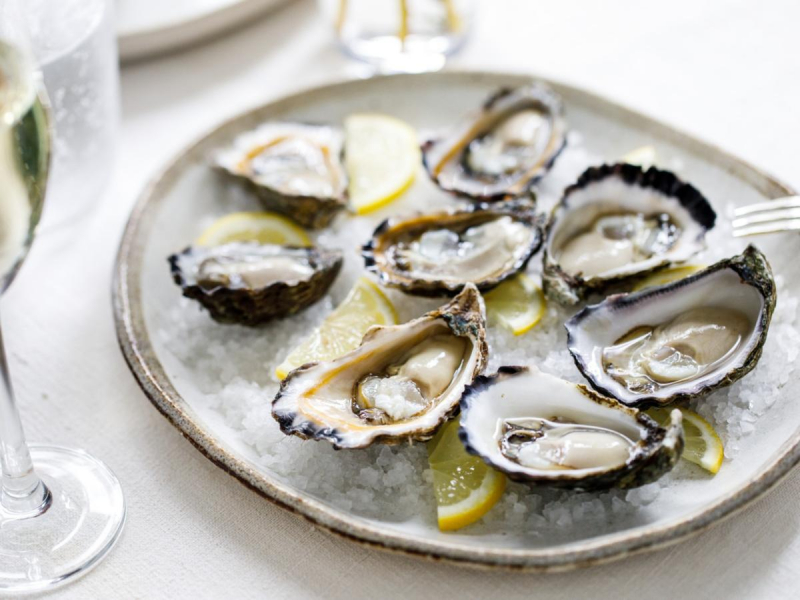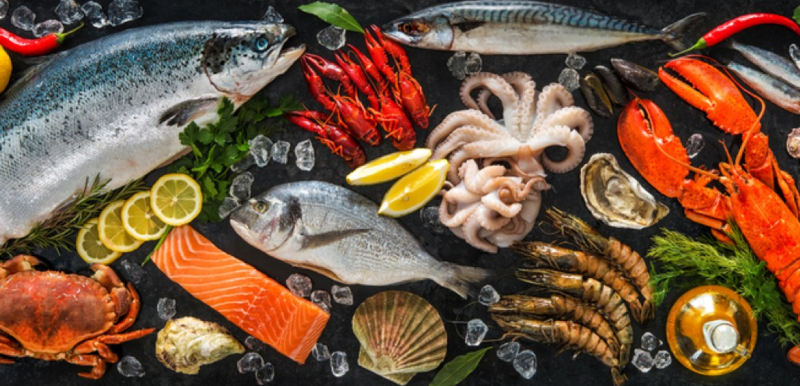Seafood
In "The Keto Minute," Dr. Korman found out that, "oysters have carbs in them due to the glycogen in the muscles. Animals, upon death, go through some rigor mortis at which time sugar is depleted from the muscles. Glycogen is actually stored in muscles for future glucose needs. When animals die, the glycogen is depleted from the muscles, leaving them carb-free. In the oysters, however, the glycogen remained in their muscle tissue, so carbs remained present".
Oysters, mussels, abalone, whelk, clams, octopus, and scallops, for example, provide a considerable amount of calories (10–25%) as carbohydrates. However, this does not mean that you should avoid shellfish while on the Keto Diet. Overall, they have a low carbohydrate content and are high in protein and omega 3 fatty acids - all of which help glucose metabolism.












